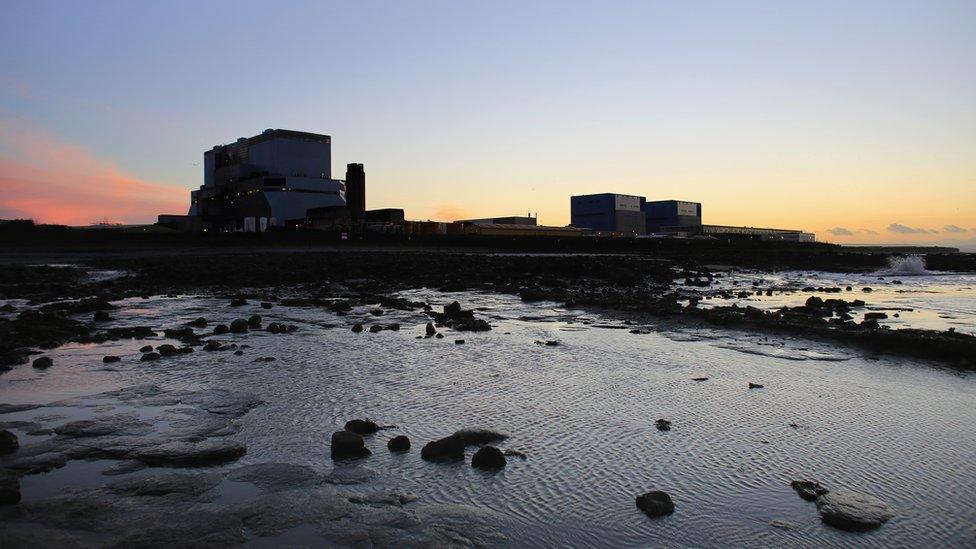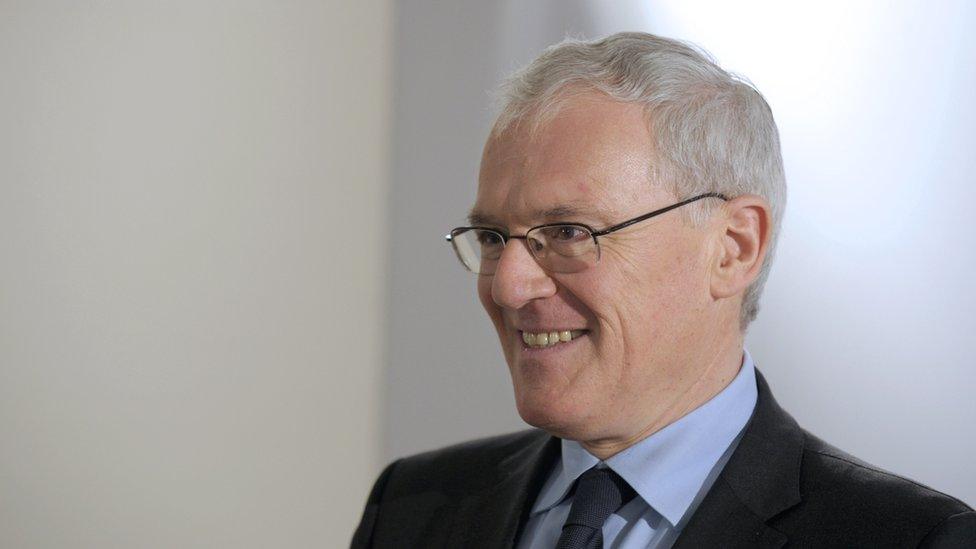Hinkley Point nuclear plant delayed, says EDF
- Published

The new nuclear plant will be built next to two existing facilities at Hinkley Point in Somerset.
EDF has admitted that the construction of Britain's first new nuclear power plant in decades has been delayed.
The French energy company said Hinkley Point C in Somerset will not start generating power in 2023 as planned.
EDF says it will provide a revised timetable for the £24.5bn plant when it takes a final investment decision on the project.
The news comes as a report for the OECD says that the UK's projected nuclear costs are the highest in the world.
Funding
The delay to Hinkley Point delay is bad news for the government. The UK's old coal-fired power plants will be forced to close before 2023 under EU air quality rules and the gap in generating capacity will have to be filled some other way.
EDF has been struggling with securing finance for the project but hoped to secure Chinese funds when the Premier Xi Jin Ping visits London next month.
Its chief executive, Jean-Bernard Levy, said he still had "full confidence in the success of the Hinkley Point project".
But it has been dogged by finance problems and negotiations with the EU over state aid.
A spokesman for the Department of Energy and Climate Change said: "The UK Government and EDF are continuing to work together to finalise the project. The deal must represent value for money and is subject to approval by ministers."
Unite called on Energy Secretary Amber Rudd to press potential investors to make a decision on Hinkley Point.
"Business and domestic consumers face the very real prospect of power cuts and the lights going out in the years to come, if the final investment decision on Hinkley Point is not made very soon," said national officer Kevin Coyne.

EDF chief executive Jean-Bernard Levy said he still had "full confidence" in the Hinkley Point project
The OECD report shows that the cost of a nuclear plant in Britain, external is projected to be almost three times higher than in China or South Korea.
Costs of nuclear are hard to compare from one country to another, but the gulf between projected costs in China and the UK is indisputable.
It is partly a question of scale given that China is building dozens of new nuclear stations. But it is also partly because state-run nuclear enterprises can borrow at very low or even zero rates of interest.
Some experts want the UK to take back the nuclear industry into a form of state ownership.
The left-leaning think-tank IPPR says to keep costs down and create policy stability the government should effectively renationalise the new nuclear industry by owning the 12 planned plants and outsourcing their construction and running to private sector firms.
On Thursday EDF said its new European Pressurised Reactors (EPR) would be further delayed until late 2018.
The company plans to install two EPRs at Hinkley Point.
EDF has now pushed back the reactor's delivery date four times over safety concerns.
Costs for the joint venture with atomic energy giant Areva have now soared to €10.5bn (£7.7bn).
Both France and Britain have chosen the EPR design to replace their older nuclear reactors.
Follow Roger on Twitter, external
- Published12 February 2015
